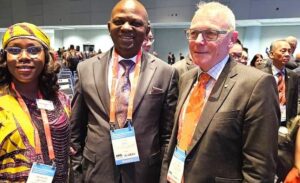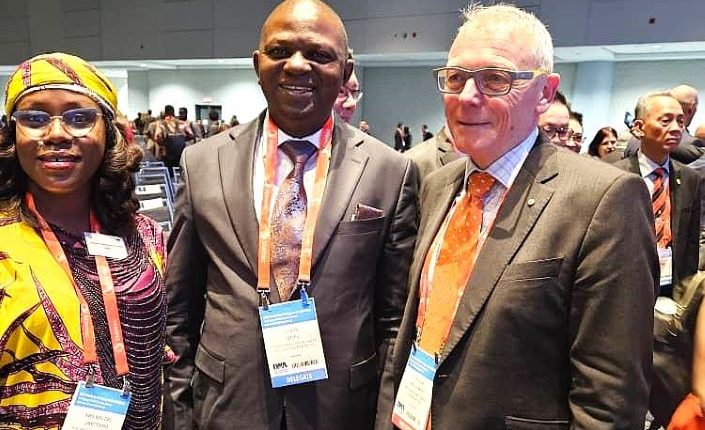In an era where water scarcity and poor sanitation threaten the very fabric of human civilization, Nigeria’s Minister of Water Resources and Sanitation, Professor Joseph Utsev, is emerging as a pivotal voice on the global stage. Speaking at the prestigious 2024 World Water Congress and Exhibition in Toronto, Canada, Professor Utsev delivered a powerful message to world leaders, urging them to intensify their efforts to ensure access to clean, sustainable water and improved sanitation services—particularly in developing countries like Nigeria.

Nigeria, a nation with a population exceeding 200 million, is blessed with abundant water resources from rivers, lakes, and dams. These natural resources are crucial for both consumption and large-scale irrigation farming, which supports the country’s agriculture and food security. However, the rapidly growing population, urbanization, and the ever-looming threat of climate change are placing immense pressure on these resources. As Professor Utsev pointed out, these challenges are not exclusive to Nigeria but are common across many developing nations, posing significant risks to food security, public health, economic stability, and environmental sustainability.
In his address, Professor Utsev emphasized that tackling these complex issues requires a strong global commitment to accelerate efforts and adopt innovative strategies for the sustainable management of water and sanitation. He highlighted the strategic initiatives being implemented by the Nigerian government under the leadership of President Bola Ahmed Tinubu, all of which align with the United Nations Sustainable Development Goal 6 (Clean Water and Sanitation) and the African Union’s Agenda 2063.
Among the key initiatives outlined by Professor Utsev are the National Water Resources Master Plan, the National Water, Sanitation, and Hygiene (WASH) Policy, and the Partnership for Expanded Water Supply, Sanitation, and Hygiene (PEWASH) program. These programs are designed to address the pressing water and sanitation challenges facing Nigeria by enhancing water institutions, promoting water efficiency, and investing in water infrastructure and technology.
Professor Utsev’s call to action was clear: the challenges posed by water scarcity and poor sanitation cannot be tackled in isolation. He underscored the need for world leaders, development partners, and stakeholders in the water and sanitation sector to unite in their efforts to support developing nations, including Nigeria, in achieving water security. This collaboration, he noted, should involve sharing knowledge, technologies, and resources to build a more water-secure world for all.
“I want to emphasize that the future of water is the future of humanity. Let us seize this moment to reaffirm our commitment to water security, innovation, and the collaborative spirit that has brought us together here in Toronto, Canada,” Professor Utsev declared, his words resonating with urgency and determination.
He continued, “Together, we can turn the tide on challenges and ensure that every person in every corner of the world has access to the water they need to live, thrive, and prosper.”
The significance of this message was echoed by Tom Mollenkopf, President of the International Water Association, who praised the congress as a critical platform for unraveling complex problems and exploring solutions. Mollenkopf emphasized the importance of international collaboration in effectively addressing global water needs.
As the global community grapples with the realities of water scarcity and climate change, Professor Joseph Utsev’s leadership and vision for Nigeria’s water security stand as a beacon of hope. His call for enhanced global collaboration and concrete actions serves as a reminder that the future of humanity is inextricably linked to our ability to manage and preserve our most precious resource—water.






